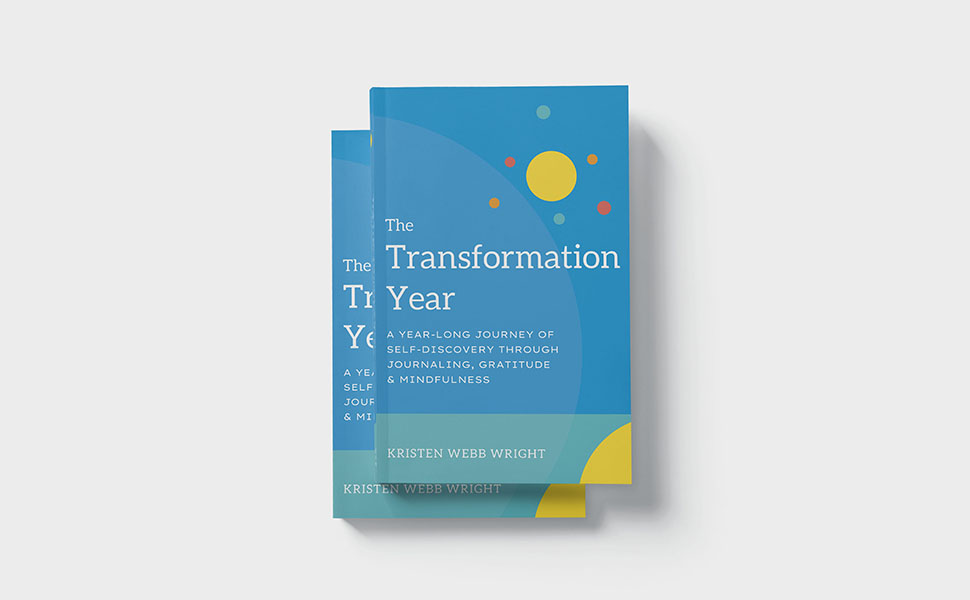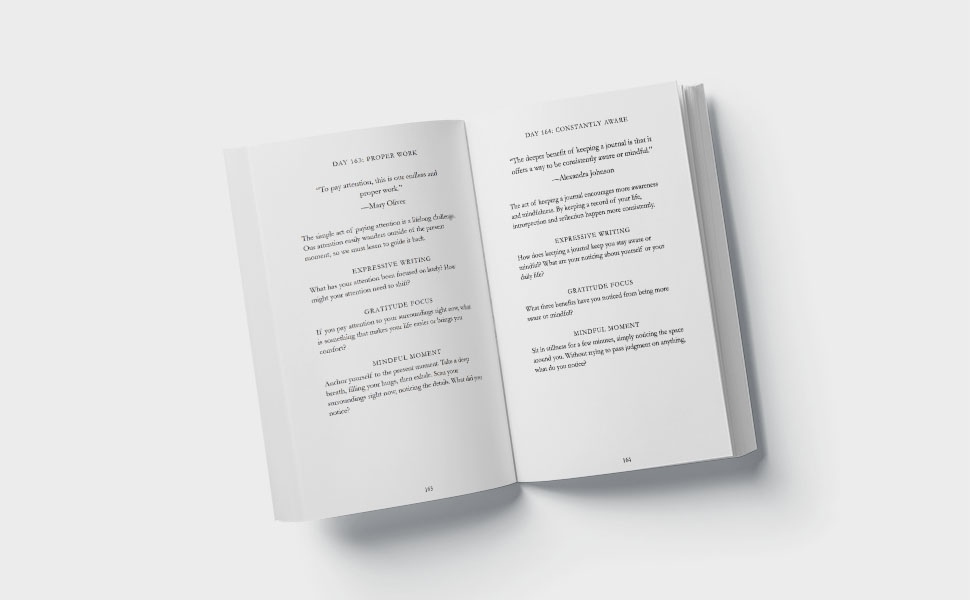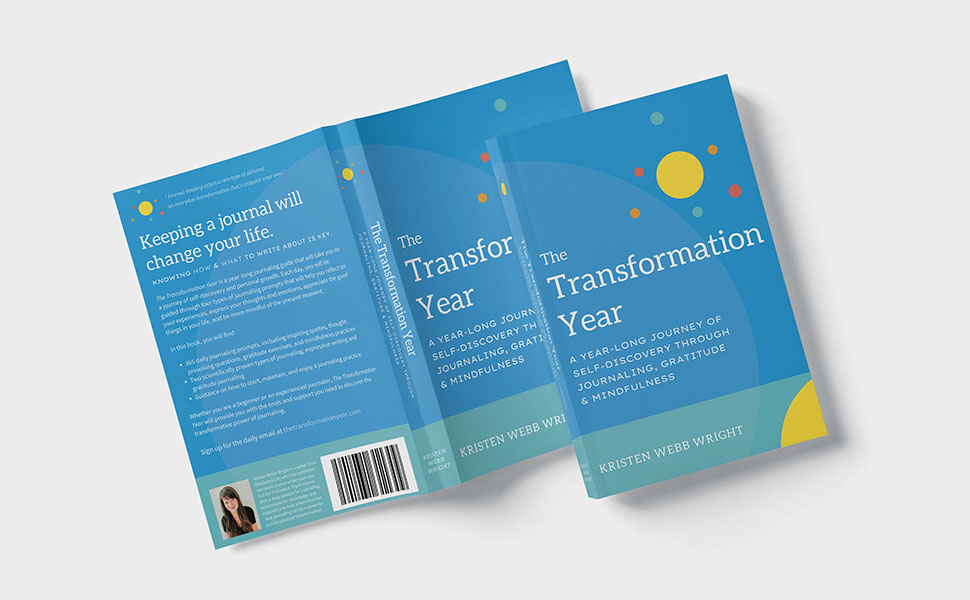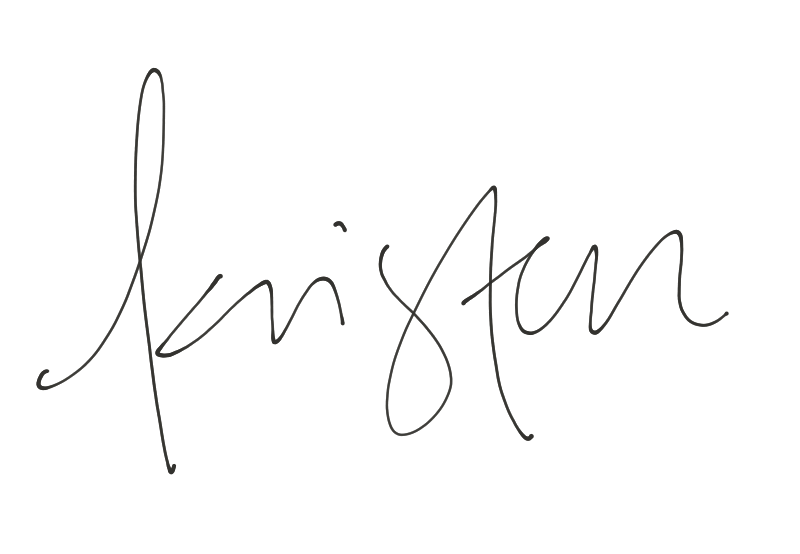Outside my office window, the December morning sky is pale gray. A cardinal lands on a branch of the redbud tree, then quickly flies away. The trees are bare now, although some of the last deciduous holdouts in the neighborhood are just peaking with their fall colors. One particular tree, down the street, was bright red just nine days ago, and I was astonished to find it transformed yesterday morning, with all its leaves dropped in piles around it on the ground.
Keeping a journal has helped me pay attention to these things—the sky, the trees, urban wildlife, and how the seasons change. Keeping a record of my life has also taught me to document my own interior landscapes, helping me untangle the threads of what has changed over the years—and what remains the same.
I believe keeping a journal is one of the most important projects we can undertake during our lives, yet the task is rarely regarded with wonder. I personally know the toil it can sometimes involve—an exhausted mind and heart would rather do anything but find a blank page to fill.
The past few years have brought unexpected changes to my life: a difficult pregnancy, the challenges of being a new parent, a pandemic, losing my dad suddenly to a heart attack. These big life events have shown me that the mental, physical, and emotional task of keeping a record of a life will indeed have gaps and silences; as much as I was convinced that keeping a journal should be a necessary daily task much like eating, sleeping, or even exercise, sometimes, frankly, you don’t want to write about anything at all.
My journal has been my mirror and compass, reflecting my true self back to me, and giving me a sense of direction I would not have known otherwise.
On the other hand, keeping a journal has given me a profound sense of meaning in my life, which is why I know it’s my duty for a lifetime. My journal has been my mirror and compass, reflecting my true self back to me, and giving me a sense of direction I would not have known otherwise. I am often surprised when I look back at my journals only to discover memories that I might have otherwise forgotten—moments of contentment, awe, and sheer joy. Most of all, keeping a journal has taught me that each day holds something significant, something worth recording. Keeping a journal has reminded me again and again of the richness and abundance of my daily life, no matter how mundane or predictable some days may seem.
Journaling has meant so much to me, I somehow managed to publish two books of my journals; I’ve taught workshops and webinars on journaling; and now, to my astonishment, my career has shifted so that I can focus on helping others discover the benefits of journaling full-time. Many of my friends and family know how passionate I am about journaling, so I often get asked how to get started. I appreciate the genuine interest people show in wanting to keep a journal, but they sometimes seem defeated before they even begin. Maybe the commitment seems too large, too looming. Everyone is so busy these days, who really has the time? Where do you begin? How do you develop a daily journaling habit that lasts? And what exactly do you write about? (Not to mention—something I realized I skimmed over once, assuming everyone already knows—what is journaling, really, anyway?)
My simple definition of journaling is this: Journaling is a personal record of experiences, events, insights, and reflections, kept on a regular basis.
My simple definition of journaling is this: Journaling is a personal record of experiences, events, insights, and reflections, kept on a regular basis. You don’t have to journal every day, but some people may find it helpful or beneficial to do so, as I have. Starting a journal can be as easy as opening a blank document on your computer, grabbing a pen and a notebook, using a journaling app like Day One, or even recording yourself in a video or audio message on your phone. There are many ways to keep a journal, but the most important thing is to keep it simple and easy.
As for deciding what to write about, journal prompts can be a great way to get started. Journaling prompts are questions or ideas that can help you to get into the right frame of mind to begin thinking and writing. Although I don’t usually use journaling prompts myself, I realized that creating prompts is one of the best ways that I can help people start, maintain, and actually enjoy a journaling practice.

The Transformation Year is designed to be your guide through a life-changing year of journaling—and self-discovery.
The Transformation Year is designed to be your guide through a life-changing year of journaling—and self-discovery. It’s also the book that I needed, as it became a way to compile all the life-changing quotes I’ve collected over the years. As I’ve written this book, I’ve often caught myself wanting to answer the prompts in my own writing, too. In addition to the quotes, each day includes a prompt to help you express yourself and learn more about yourself, another prompt to help you appreciate what you are grateful for, and a simple mindfulness exercise to bring you into the present moment.

You can start The Transformation Year at any time of the year, on any day of the week. The entries are numbered by day, not by date, so you can take a break at any time and start again where you left off. All you need is a bookmark to mark your place as you progress through the year.
The theme of this book, of course, is transformation. Journaling is one of those rare endeavors that can bring a profound change to you and your life, as you explore your experiences and memories, and express your thoughts and emotions. But like most meaningful endeavors, journal-keeping does require some effort and commitment. My hope is that The Transformation Year will make you excited to meet each new day with new discoveries, ideas, and insights—so that keeping a journal can even be fun.

Most of all, I hope this book will help you see your daily life in a new way, and that it will inspire you to develop a journaling habit that brings as much meaning, satisfaction, and transformation as I have experienced in mine.
Here’s to the next year, brimming with possibilities—and all the treasures it will surely bring. Journal-keeping offers a rare type of alchemy, a transformation that’s uniquely your own.

